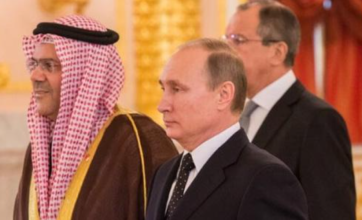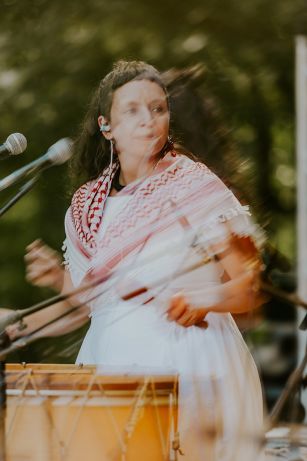
By Alireza Bahrami
TEHRAN: For Liliana Abreu, a 40-year-old artist from Porto, silence is no longer an option. Witnessing the ongoing genocide in Gaza, she has chosen to stand as an artist of conscience, using her voice and her art to denounce violence and demand peace. Wearing a Palestinian keffiyeh on stage and filling digital spaces with appeals for justice, she seeks to remind audiences that art must respond when humanity itself is under attack.
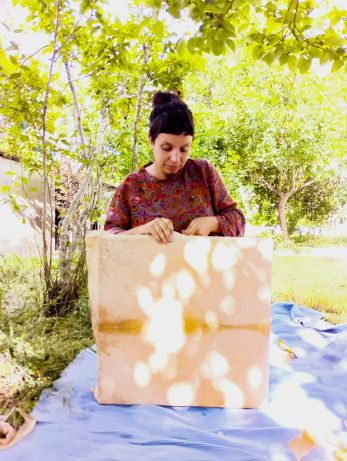
Abreu’s commitment to Gaza did not come out of nowhere. Throughout her career, she has cultivated a deep belief in art as a tool for community, healing, and peace. With a Master’s degree in Theater – Acting and Directing (Porto School of Music and Performing Arts, 2011) and a Bachelor’s degree in Tourism, Leisure, and Heritage (University of Coimbra, 2006), she has consistently oriented her work toward collective well-being rather than individual fame.
Over the past decade, she has coordinated numerous community projects: working with children, seniors, and patients of the Portuguese Cerebral Palsy Association, and leading initiatives such as enRedArte, which engaged 5,000 people in rural Portugal through residencies, workshops, and cultural programs. She has also pioneered educational and pedagogical projects, founded the cultural cooperative Frenesim, and created shows like DeRaiz and O Fio—all shaped by the conviction that art is a bridge to inclusion, dignity, and mutual respect.
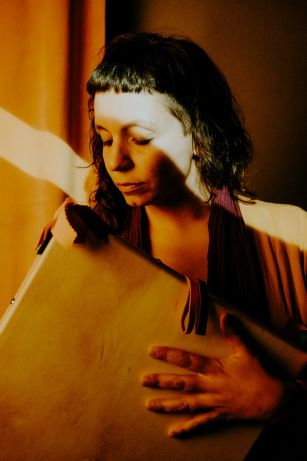
Her artistic leadership has extended to music ensembles such as Sons do Douro and Desassossegar, where traditional instruments became vehicles of cultural memory and community solidarity. Whether working with babies, teenagers, or the elderly, her approach has always centered on participation and empowerment. “Art is the language of the voiceless,” she has often said—a conviction that now leads her to Gaza.
In 2023, Abreu began a participatory art project with migrant women in Portugal, supported by Fundação Calouste Gulbenkian and Teatro Nacional D. Maria II. At the same time, her activism expanded to international causes, with Gaza becoming the most urgent. For her, the suffering of Palestinians is not a distant tragedy but a global wound.
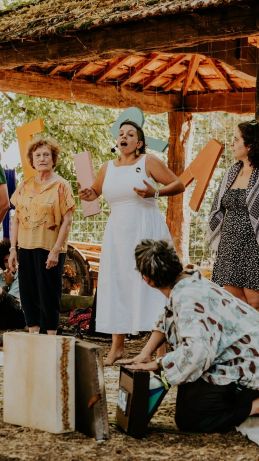
By placing her artistic skills at the service of the oppressed, Liliana Abreu embodies the idea that culture is not neutral: it either perpetuates silence or challenges injustice. From rural classrooms in Portugal to the stages of international festivals, her path shows how an artist’s career can merge with the broader struggle for human dignity.
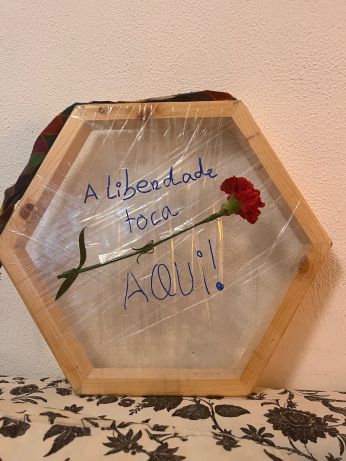
Today, she insists that the genocide in Gaza must be named and opposed. Her life’s work—connecting art with peace, participation, and memory—has found its most pressing stage: the defense of life and justice for the people of Gaza.

